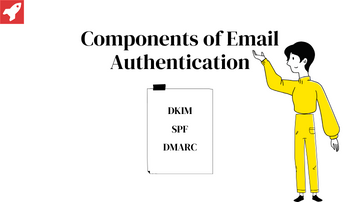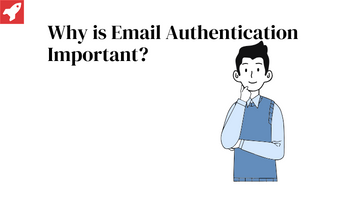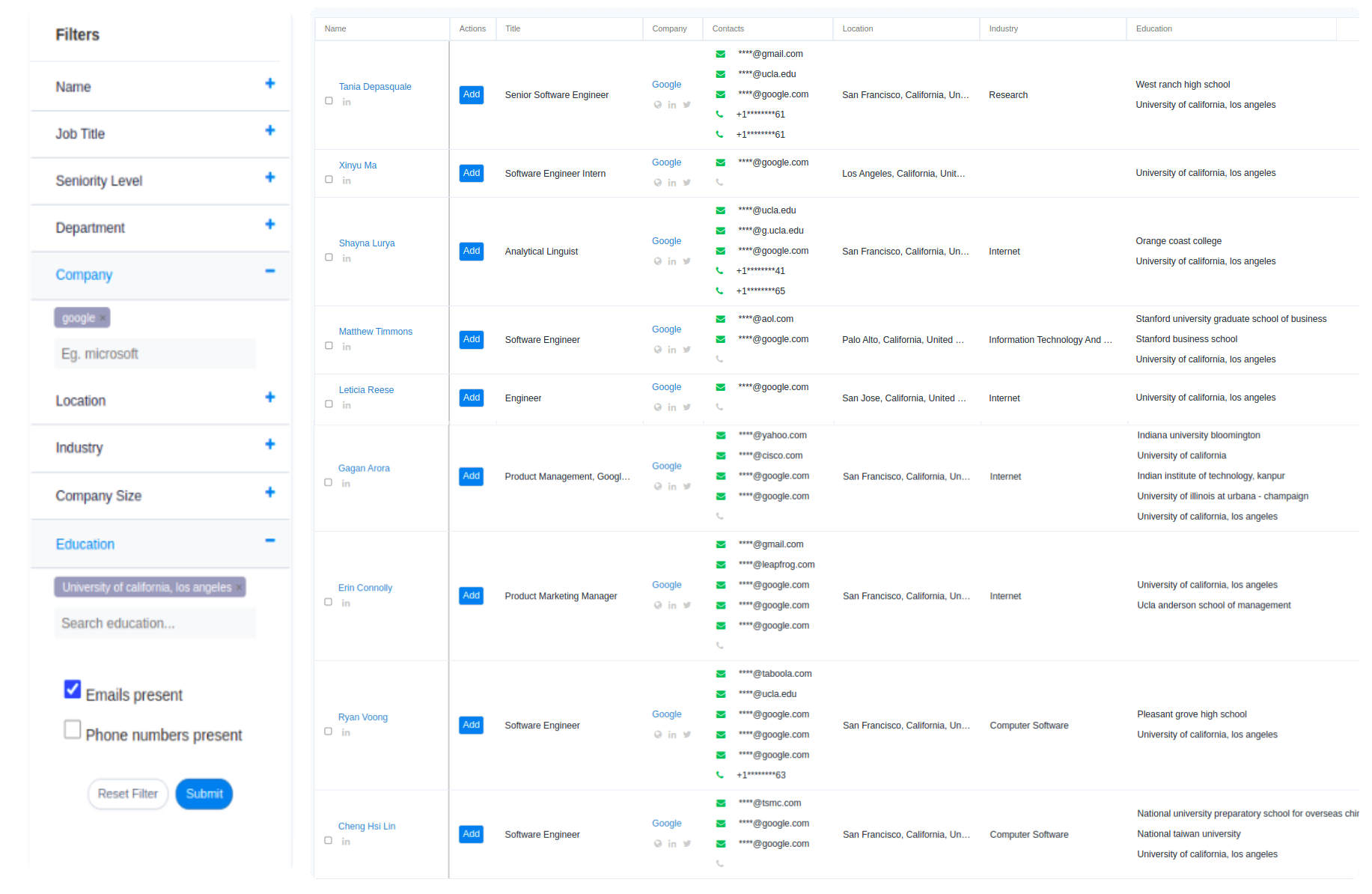Email marketing is doing wonders for outreach and marketing purposes. To generate the best results for your email, you should check every aspect of your email marketing. It is necessary to have verified emails for your email marketing. To verify email, you can use email verifier. Let us understand the importance of having an authentication process in Email Marketing.
Email authentication ensures that messages delivered are valid and originate from authorized sources. Email authentication ensues that emails are not vulnerable to misuse by unauthorized parties. This part of email marketing builds trust, increases deliverability rates, and protects brand reputation. As cyber risks increase, a strong authentication mechanism is mandatory to ensure the efficacy and integrity of email marketing efforts.
In email marketing, authentication refers to the set of protocols and techniques. This is followed to verify the legitimacy of an email message’s sender. Email authentication ensures that the message is not tampered with during transit. The goal is to establish trust between the sender and recipient, mitigating the risk of phishing, spoofing, and unauthorized brand identity use.
SPF (Sender Policy Framework)
Sender Policy Framework (SPF) is a widely adopted authentication protocol. It enables domain owners to specify which mail servers are authorized to send emails on their behalf. By publishing SPF records in the Domain Name System (DNS), organizations can prevent spammers from forging their domain names, thereby enhancing the accuracy of email authentication.
DKIM (DomainKeys Identified Mail)
DomainKeys Identified Mail (DKIM) is another essential authentication method that adds a digital signature to outgoing emails. This signature, generated using cryptographic keys, allows the recipient’s mail server to verify that the message is not altered in transit and originated from the claimed sender’s domain.
DMARC (Domain-based Message Authentication, Reporting, and Conformance)
DMARC is a framework that builds upon SPF and DKIM to provide an extra layer of email authentication. It enables domain owners to set policies for handling their emails if they fail SPF or DKIM checks. DMARC facilitates reporting mechanisms, allowing organizations to receive feedback on email authentication failures and potential phishing attempts.
Why is Email Authentication Important?
Email authentication helps establish and maintain a positive sender reputation. Organizations implementing authentication protocols such as SPF, DKIM, and DMARC are committed to securing their email channels. This commitment is recognized by email service providers (ESPs) and helps build trust with recipients. A positive sender reputation contributes to higher deliverability rates and ensures that legitimate emails are not mistakenly flagged as spam.
Authentication mechanisms act as a deterrent against phishing and spoofing attacks, which are common tactics used by cybercriminals to deceive recipients. By validating the sender’s authenticity through protocols like SPF, DKIM, and DMARC, organizations can significantly reduce the likelihood of their brand being exploited for malicious purposes. This, in turn, enhances trust among recipients, as they can be more confident that their emails are from legitimate sources.
Email deliverability refers to the ability of an email to successfully reach the recipient’s inbox without being filtered into spam folders or bounced. Email authentication directly impacts deliverability rates by providing a mechanism for ESPs to verify the sender’s legitimacy. Emails that pass authentication checks are more likely to be delivered to the intended recipients’ inboxes, contributing to a positive sender reputation.
Implementing authentication protocols helps organizations steer clear of spam filters. Spam filters often flag unauthenticated or improperly authenticated emails as suspicious, leading to lower deliverability rates. By adhering to authentication best practices, marketers can ensure that their emails are recognized as genuine. This ensures that it is less likely to be marked as spam, ultimately reaching a larger and more engaged audience.
How Does Email Help In Authentication and Brand Credibility?
Email authentication, mainly through custom domains in SPF, DKIM, and DMARC records, helps maintain consistent branding. Custom domains ensure that email messages carry the official domain name of the organization, reinforcing brand identity. This creates trust with recipients and helps create a cohesive and recognizable brand image across all communication channels.
Email authentication aligns with a company’s commitment to brand integrity. By incorporating authentication protocols, organizations signal to recipients that they take their brand identity seriously. This consistency in branding across email communications helps build a strong and memorable brand presence in the minds of customers, partners, and stakeholders.
Email authentication is a defense mechanism against brand impersonation and unauthorized company identity use. Cybercriminals often attempt to exploit reputable brands by sending fraudulent emails that appear legitimate. Through authentication protocols like DMARC, organizations can establish policies that instruct email service providers on handling unauthorized emails, preventing cybercriminals from impersonating the brand.
Phishing remains a significant threat to brand credibility, as attackers trick recipients into divulging sensitive information or taking malicious actions. Authentication helps mitigate phishing risks by ensuring that recipients can verify the legitimacy of emails from the official brand domain. The verification process is an additional layer of protection and improves overall cybersecurity. This ensures preserving the brand’s trustworthiness.
Trends in Email Authentication That We Should Know
As cyber threats continue to evolve, the future of email authentication will see the adoption of more advanced cryptographic techniques. This includes the usage of quantum-resistant algorithms to improve the security of digital signatures used in authentication protocols like DKIM. The ongoing research and development in cryptographic methods aim to stay ahead of potential threats and ensure the long-term integrity of email communication.
In pursuing heightened security, future authentication methods may integrate biometric authentication within email systems. This could involve using fingerprint recognition, facial recognition, or other biometric markers to validate the sender’s identity. Such advancements could provide an additional layer of security, reducing the likelihood of unauthorized access to email accounts and preventing malicious activities.
With the rise of instant messaging and chat applications, the future of email authentication may extend beyond traditional email channels. Authentication protocols are adapted or developed to secure communication within emerging platforms. By this, users can trust the identity of the sender and the integrity of the messages exchanged.
The future of email authentication is expected to witness a continuous evolution of technologies, focusing on advanced cryptographic methods and potential integration with emerging communication platforms. As digitalization grows, staying ahead of cyber threats and adapting authentication practices to meet the needs of new communication channels will be important parts of maintaining the security and trustworthiness of email communication.
Final Word
As digitalization grows, businesses must recognize the dynamic nature of cyber threat techniques employed by malicious actors. It is helpful for organizations to prioritize and enhance their email authentication practices. This involves:
Adopt and consistently update SPF, DKIM, and DMARC protocols to avoid potential vulnerabilities and ensure the effectiveness of email authentication.
Invest in educating IT and marketing teams on the importance of email authentication, its components, and best practices and building internal teams to implement authentication measures successfully.
Regularly monitor authentication processes and make adjustments based on emerging threats and changes in email marketing. This approach ensures that authentication practices remain effective in evolving cybersecurity challenges.
Stay informed about advancements in authentication technologies, including biometrics and blockchain, and assess their applicability to enhance the security of email communication.
Businesses can strengthen their email security infrastructure by taking these steps and maintaining a positive sender reputation. This builds trust with their audience in an increasingly digital world. Prioritizing email authentication and email verifier practices is not just a cybersecurity need. It is a strategic move for the long-term success of an organization engaged in email marketing.
Do you want to generate leads at a low cost? Download our Chrome extensions and start exploring it for free.
Try AeroLeads for Free! Signup Today itself.
For any queries feel free to contact us at hello@aeroleads.com or chat with our support team from our homepage.




